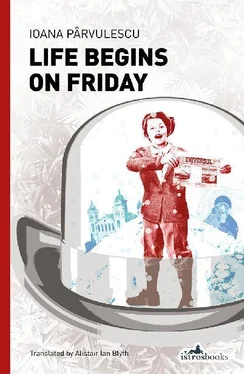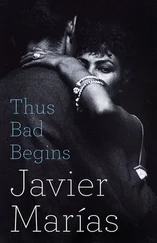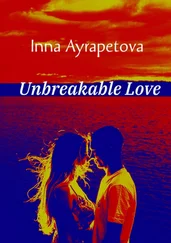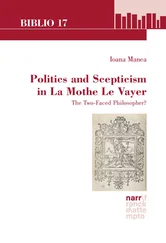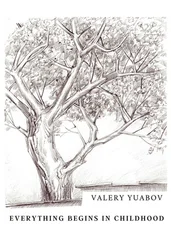And she kissed him on the forehead. She was neatly dressed, ready to go out. She had laid food on the table for him. He had not seen this mother for months, he could not remember since when. He had missed her sorely and he felt like bursting into tears of joy, but then he remembered the misfortune of the day before, at the tram stop, the first envelope he had not been able to deliver, and again he felt his heart weigh heavily in his chest. He knew what a heart looked like, half red, half blue, with some tubes sticking out of it, he had seen one of Dr Margulis’ charts, but he was certain that his was completely black and crumpled with grief.
Should he tell his mother? No, why frighten her? Her heart was certainly like a dove’s chick; you could not go near it without making it tremble in fear. Should he tell Iulia? He did not have the courage. She had given him it in such great secrecy and begged him repeatedly to place it in Alexandru’s hand. Iulia’s heart was like a soft cheese. Should he tell old man Cercel? He could tell him, especially since he would be visiting him today. They were to meet at Universul in the afternoon and leave together. But what was the use of telling him? Old man Cercel knew how to read well, although he had had only four years of schooling, he was up to date about politics, he was very clever, but he didn’t have any great power. He was even a little afraid of him: he had clouted Nicu a few times, without him understanding why. But what if he made Dan rewrite the note, if he was able to read what was left of it? You can confide in brothers, even adoptive ones, and ask them to do certain things. He took out the two halves of the letter and tried to decipher them. Iulia had beautiful handwriting. The signature was very plain: Iulia Margulis, with a curlicue like a shoelace tied in a double bow, but apart from that he could only decipher four words and a number, ‘green and red,’ ‘five’. There was nothing to be done, and so he threw the envelope on the fire.
He decided he might go carolling with the other boys that evening, to the Livizeanu house, and see whether anything could be salvaged. The Livizeanu family gave out lots of nice presents. What if he confessed to Mr Alexandru? He admired him because he was rich and handsome and self-confident. And it was as if he felt the pitch black of his heart had turned as brown as the chestnuts on the kitchen shelf, which he had collected that autumn. Some of them were skewered on long nails in the shape of a man. But the once plump and glossy chestnuts were now shrivelled. That was what his heart must now look like too.
*
At five in the afternoon, Nicu and old man Cercel climbed aboard a coach on whose sides was inscribed UNIVERSUL in white letters. The lad did not know how the doorman had managed to arrange it, because the newspaper reserved the coach for people more important than them, but anyway he was proud to sit next to his friend and look down at people.
‘Can we pull the hood down so that we can see better?’
They had both been thinking the same thing, since the doorman was already pushing the canopy back as Nicu made his request. It was a mild day. There had not been a milder Christmas Eve in a long time.
‘How many days before they announce the result of the lottery?’
‘Well, if today is the twenty-fourth, then it’s a whole week, on the thirty-first, on New Year’s Eve, but at the newspaper we’ll know the result on the evening of the thirtieth, so that we can publish it. If I win, you’ll get a third, as much as is rightfully yours.’
They entered the boulevard. Old man Cercel looked admiringly at the University building and Nicu at Michael the Brave, astride his bronze horse and waving an axe with his left hand. And for the first time the lad thought that maybe the prince had been left-handed, like he was, and that thenceforth he would know what to say to the other boys at school when they laughed at him, like they did when he was unable to use a pair of scissors, for example. Why didn’t they make scissors for left-handed people, with the cutting edge the other way around?
The doorman’s cottage was on Strada Vișinelor (Cherries Street), not far from the Traian Covered Marked, in the Popa Nan quarter. And the strange thing was that old man Cercel did not have any cherry trees in his yard, only plum trees and doves. Nicu was on his way there now, as a customer, to buy a dove, which he wanted to give Jacques as a present for Christmas. It was a long journey, along Carol Boulevard, then Pache Boulevard, both of which had been cleared of snow, then to the right, along Strada Traian, as far as the Communal School, and finally to the left, the third house along. It was dark in the city. Behind the windows lights could be seen and here and there, in the big houses, Christmas trees. There were garlands on the gates and the all the street lamps were lit. Nicu sensed the festive atmosphere in the air as he sat on the bench of the coach beside old man Cercel, flying above the mud, drawn by the grey horses of Universul , which ran like racing champions.
The lad had found a game to amuse him and to stave off the boredom: he watched for the sparks that the horseshoes sometimes gave off when they struck a cobblestone. The coachman had a bottle of strong liquor, which he raised to his mouth from time to time, after which he would gasp as if scorched. The doorman had dozed off, and Nicu spent a long time studying his red splayed nose. Strangely, the coachman did not have a red nose, even though he tippled, while the doorman, who never touched a drop, had nose prone to turning red. One of Nicu’s latest preoccupations was studying people’s ears and noses, all of which seemed very comical to him, and if you looked at old man Cercel, whose ears were like the solid handles of a mug and whose nose had a bristle hairbrush beneath it, you were overcome with amazement. The coachman’s nose was like a snowman’s, as long and pointed as a carrot.
They had reached the gate of the house, and Nicu found the fence depressing, without the pink, blue and purple trumpets of the morning glories that bloomed until late autumn. They climbed down and invited the coachman inside. He wanted to buy a capon to cook for New Year. Old man Cercel also had a breeding cock, with a broad chest, fiery eyes, a large crest and a fan of a tail, which crowed frequently and scratched the ground and had a harem of hens, and so he was able to sell the capon without a qualm.
His wife was busy in the kitchen, with her hair tied inside a blue headscarf, her hands and apron covered in flour. She had not yet finished baking for Christmas, and from the threshold came a scent of cabbage mingled with sweet bread dough and grated lemon, an aroma that seemed to enter Nicu’s nostrils, ears and eyes and made him feel faint with hunger. What if you could smell with your ears? Or what if you had two noses on either side of your head for smelling and an ear in the middle of your face for hearing? The doorman interrupted his reverie and summoned him to the dovecote, to settle business. Disturbed by the lamp carried by their owner, the doves started moving around and complaining in their guttural language, which Nicu found ugly, but he did not want to offend old man Cercel, and so he said in a conciliatory voice: ‘They’re sulky because we woke them up. I’d like a female dove for Jacques, but I don’t know how you can tell with doves, whether they’re boys or girls, it’s easier with other birds…’
Old man Cercel explained some very curious things to him about how doves mate and that only by their size and behaviour can you tell, although sometimes you could make a mistake, that is, there were female doves that were larger and more aggressive than the males. That was not to Nicu’s liking; he was on the boys’ side. The doorman presented his possessions by name and colour: Knight, Collar, Beauty, Cinderella, Goitre, Caviller and Drummer…
Читать дальше
